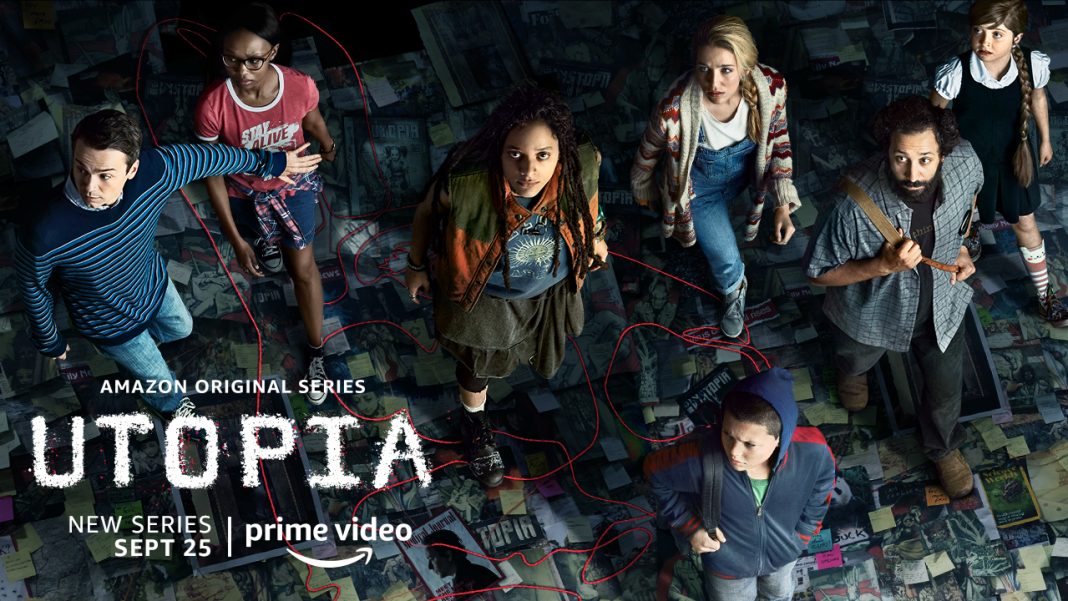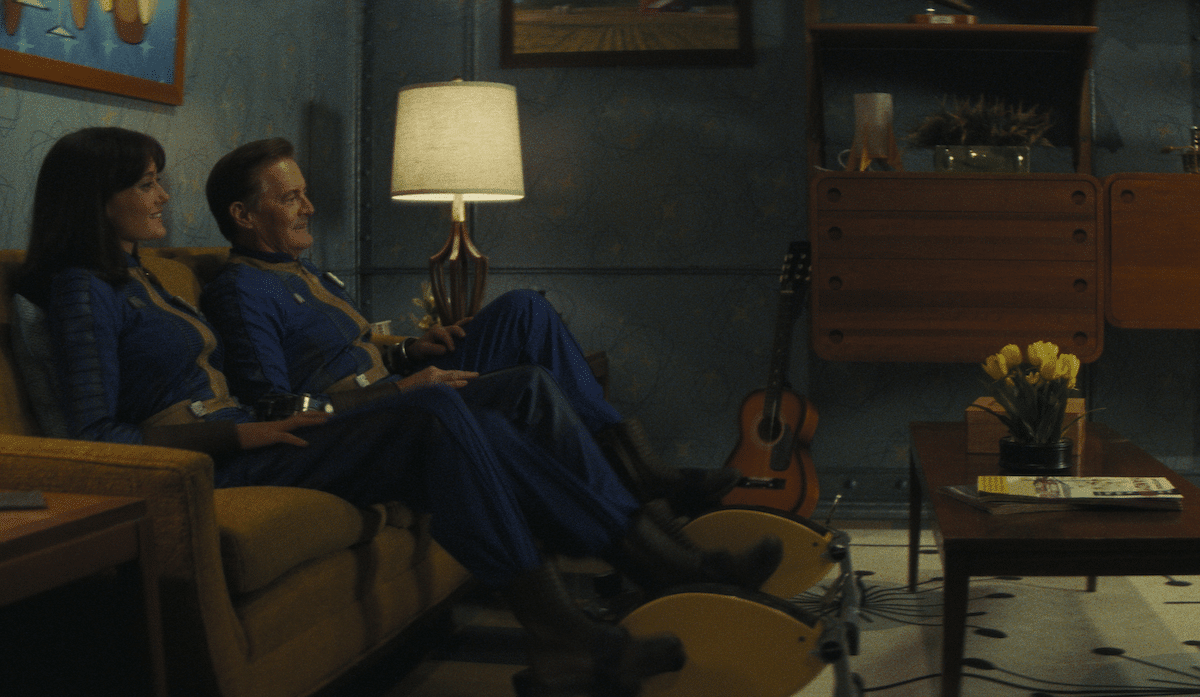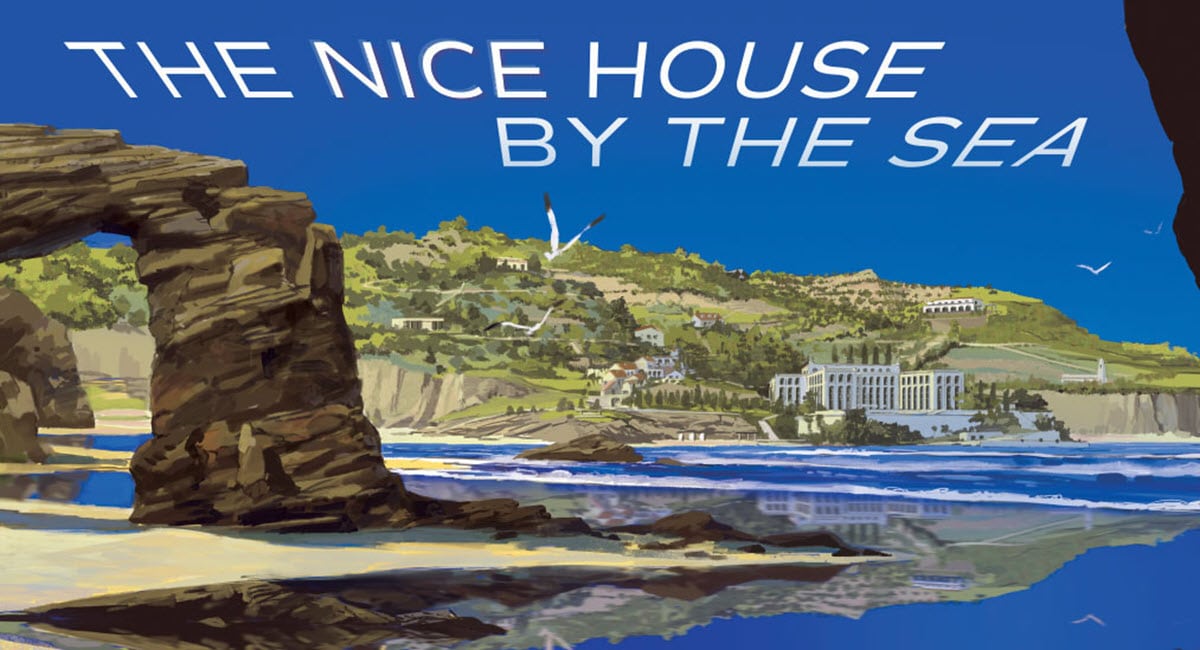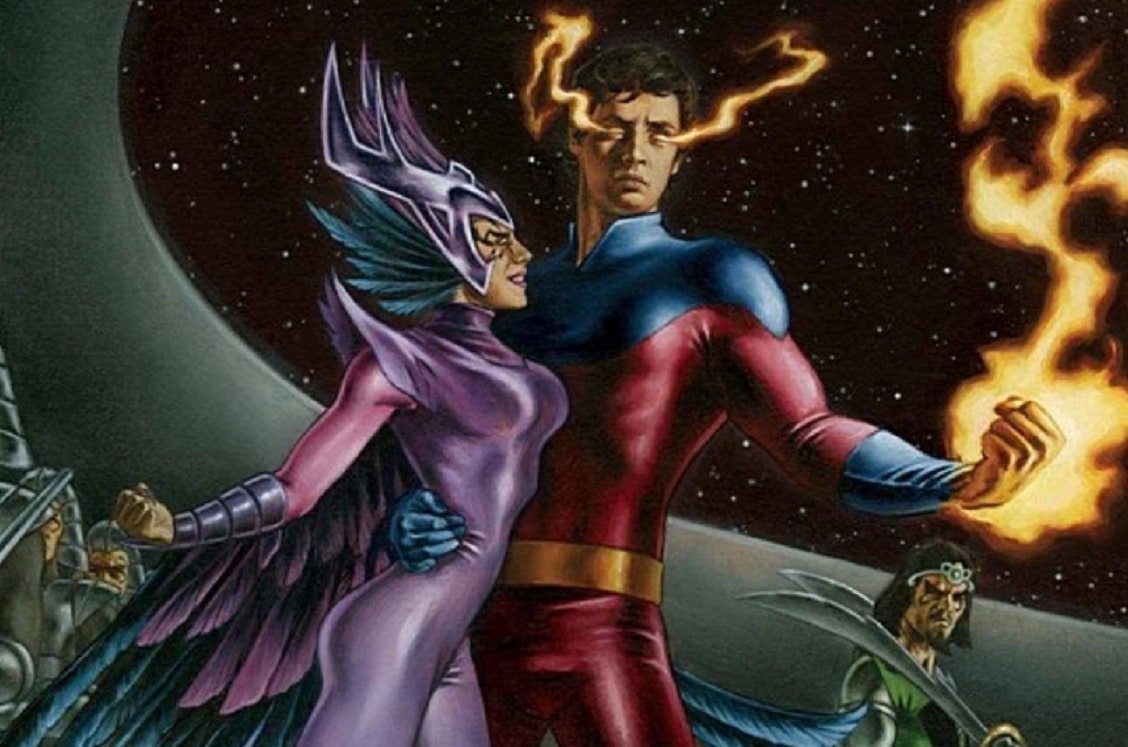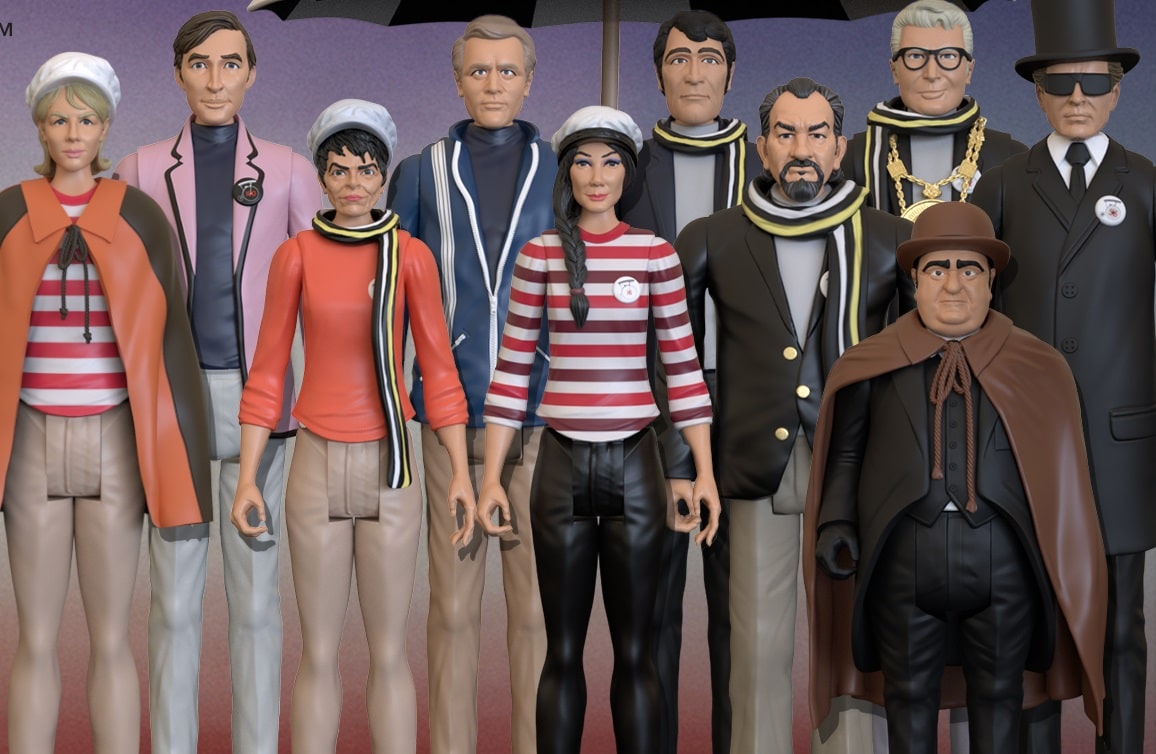Utopia is a thriller that truly kept me on the edge of my seat every single minute. The Beat spoke to showrunner Gillian Flynn (Sharp Objects), about the mysteries that lie ahead, how surreal it is to release during a pandemic, how her writing process has changed with each project, and how she put her own spin and mythology on this British remake.
On Dr. Christie’s arc, Flynn told us: “Dr. Kevin Christie (John Cusack, High Fidelity) is a character that I created myself because I liked the idea of having this superstar in the technology & pharmaceutical industry. I liked the idea that he was kind of this new sort of superhero that has very specific beliefs in where humanity should be and that he’s willing to make those come to fruition. He believes that we are on the brink of a very bad place, and he’s tired of us continuously talking about what we’re doing to the environment, what we’re doing to each other, and not doing anything about it. So, throughout the eight episodes, we’ll explore a lot of his beliefs as it pertains to society and digs deeper into what his ultimate philosophy and goal are.”
On releasing this show in the middle of a pandemic, Flynn shared: “You know, when I signed on to do this in 2013, the idea of a pandemic was very futuristic and, it was very on the edge of science fiction. And truthfully, my interests had very little to do with that fictional pandemic, it was just one of the pieces of this cool conspiracy thriller. So, I think people who want to watch the show can and may use it as a means of talking more about how we treat each other during pandemics, how we handle pandemics, and conspiracies around pandemics. This show explores the nature of truth and the malleability of it during the age of social media, which was one of the larger reasons why I was interested in doing the show. So, if you want a train ride conspiracy thriller, you can watch it on that level.”
On why she chose to reimagine this show from the UK version, Flynn said: “The show was so rich and I liked that as a writer. It had a lot of things that I that I’m always interested in, which is what things look like on the surface versus what they are underneath, how people treat each other in front of other people versus behind closed doors, truth versus fiction, and all the different fun twists that it afforded. I also like that it was different enough from mine and that it would challenge me as an ensemble piece.
“The stuff I write tends to be very psychological, very much between one or two people. My usual works are generally told from an unreliable narrator, a story between a husband and wife or a mother and daughter within a household often. With this I would get to take on lots of different characters, different points of view, and that it was really about sort of where we’re at in the world right now as a society, that it afforded that ability to kind of look at where we are as it is in humanity. So, to me, it was that it was a really good combination of being close enough to what I loved doing and but enough to push me a little bit too.”
On what struck her about the original: “For me, it was the mythology. And I wanted to create a back story to go along with this mythology. ‘What have you done today to earn your place in this crowded world?’ That’s Dr. Christie’s iconic phrase and once I wrote that, I’d decided on the theme. I wanted to examine who these people are and what kind of person would have this view of humanity that is sort of loving but also very strict and play with that. I wanted to expand on Jessica’s background more and create this idea of home.”
On what characters she related to the most and on those she despised from a humanistic perspective, Flynn told us: “I can’t wait for people to see these characters because I know that they’re just going to love to hate them. I wrote Gone Girl, so I like the characters that are deemed bad. I think my villains usually work because people can still empathize with them. I’m always like, well if you know someone’s backstory or you know someone’s childhood, there’s always something you can find. And so, there is no one that I wrote that I actively didn’t like or wrote with the intention of the audience not liking them. But I certainly understand that the audience will decide for themselves and that could be different from how I feel.
“One of the parts of being a writer is I kind of identify a little bit was with everyone. With Utopia, in particular, I’m a bit of a skeptic like Wilson Wilson (Desmin Borges, You’re the Worst). I think I’m often kind like Becky (Ashleigh LaThrop, The Handmaid’s Tale). Also, I think if you meet me at the wrong time, I can be cutthroat like Jessica Hyde (Sasha Lane, American Honey). I feel like I have all those different facets within me. Just like actors get to try out different characters and various personalities, I think writers get to do a bit of the same.”
On this process from conception to finish, Flynn shared: “My process ended up being very similar to when I write books, in that I realized that it needed to be its own thing. To me, there is no faster way to yield something boring, than trying to do what’s already been done. With Utopia, I wanted to bring something new and different to the table. So, through many lessons with Gone Girl, I got my brain to think about things differently, and I made a rule for myself that I only have one shot with this. I listen to it, take notes, and then I cannot go back to it.
“Utopia went from ten episodes to eight episodes. Once I casted for Amazon, one of the joys was getting to tweak the show according to each actor’s strengths, seeing who had great comedic timing, and who could cry on cue in believable ways. So, I got an opportunity to figure out all of these different actors’ strengths and adjust from there, which was a delight and I am thrilled with the overall result.”
Utopia is now streaming on Amazon Prime Video.


